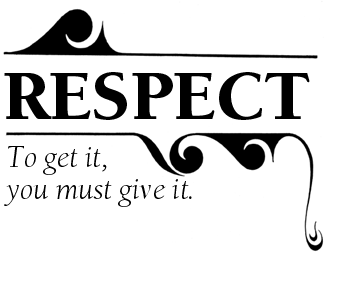How Disagreements Rock Your World!
Our brains are incredibly sensitive to nuances and meta-messages. Our need to belong and to be important in each others' eyes is strong; yet there are many ways we signal each other that show that we are not. Disagreeing with another's point of view is the case in point.

When we disagree with someone, we are sending very subtle
signals about who is up and who is down - who has the power and who does not.
Disagreements in the WorkplaceDisagreements lead us right into the dance of power - the "alpha-alpha" dynamic. Conflicts and disagreements in the workplace, set off people and cause tensions about power and status.

Disagreeing with someone is not just "disagreeing with their point of view, or the information they are sharing. Disagreeing can communicate the following
"meta-messages" if not careful:
- I am right, you are wrong.
- "You stupid idiot" (YSI) - how could you think such thoughts.
- How could you see the world that way.
- You must be blind to the truth.
Truth-telling InstinctsHuman beings have built in hard-wiring for truth-telling. When we disagree - our truth-telling sensitivities are activated - and we feel the truth or the absence of truth at the deepest levels of our being. We all want to trust our observations and beliefs; however, disagreeing can challenge US at the core of who we are. Disagreements are not felt as disagreements about 'facts and data.' Disagreements are about
'whose view of reality is true.' 
When we challenge each other's perspectives, we trigger the Amygdala - the part of our primitive brain that is associated with 'fight/flight/freeze or appease.' The neurochemical reaction to conflict goes deeper and permeates other parts of our brain such as the Prefrontal Cortex, which are associated with our 'executive functions.' Conflict is such a powerful trigger, that when 'conflicts and disagreements' arise between us - we get 'Amygdala Hijacked,' which means we get emotionally threatened and triggered!
Get Smart...
Here are some tips for avoiding getting into an unintended conflict with others:
DON'T SAY
Don't say, "yes - but" - and then deliver your perspective. The "but" negates anything that came before that appeared like an agreement - and turns the conversation into a combat.
DO SAY
Alternatively, saying "yes - and"
creates an extended conversation that builds on ideas - it says, what you said is really important, and let's take it one step further. The "and" invites further development of the conversation and expands perspectives. I call this type of conversation "co-creating" and when people in the workplace make a shift to a co-creating style - even when they don't fully agree with others - it moves people away from adversarial behavior and into collegiality.

DON'T SAY
When a colleague or boss uses the phrase
"respectfully speaking"
it is not generally taken for face value. Instead, it is translated into a way of saying.... "I know I should respect your position" - "BUT" I don't' so here goes with what I think.
DO SAY
"I understand what you are trying to say - help me with this aspect." I'm having trouble seeing how to get from here to there. This is an invitation to talk more deeply about beliefs or observations, it takes you out of the positional dialogue where you are going back and forth one-upping or arguing about what is right, and it invites people to be open to influence.
Advocating vs. Inquiring 
In summary, when we get into conversations that make us feel adversarial. We see people in "persuasion" using high levels of Advocating (their point of view). Sometimes they are Inquiring, however, the intention behind it is to learn what the other person is thinking so you can turn the conversation back to "winning your point."
Sharing and DiscoveringAs an alternative, "agreements" come more easily when people are open to influence, and when we get into conversations that feel like partnering. Where people share and discover from each other - and where they open the context and framework for both to gain new perspectives. Then agreements are a natural outflow. Even if you agree to disagree - it comes with the spirit of respect.
If you would like to gain more insights into how to have Co-creating Conversations
®, how to move from adversaries to partners, please check out my best-selling book
Creating WE: Change I-Thinking to WE-Thinking and Build a Healthy Thriving Organization.
We are pleased to announce that we are now offering
Co-Creating Conversations® workshops and certification courses.